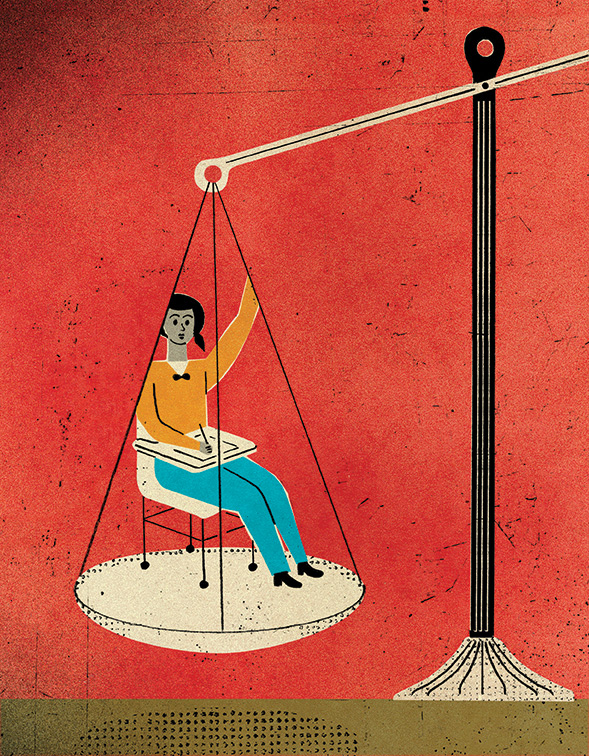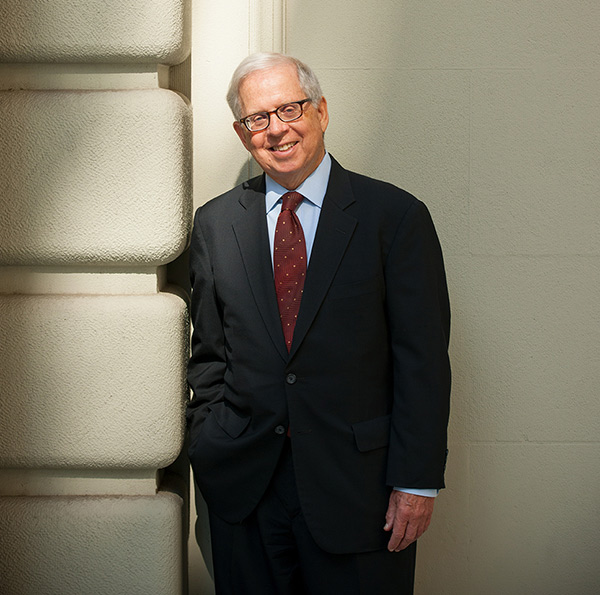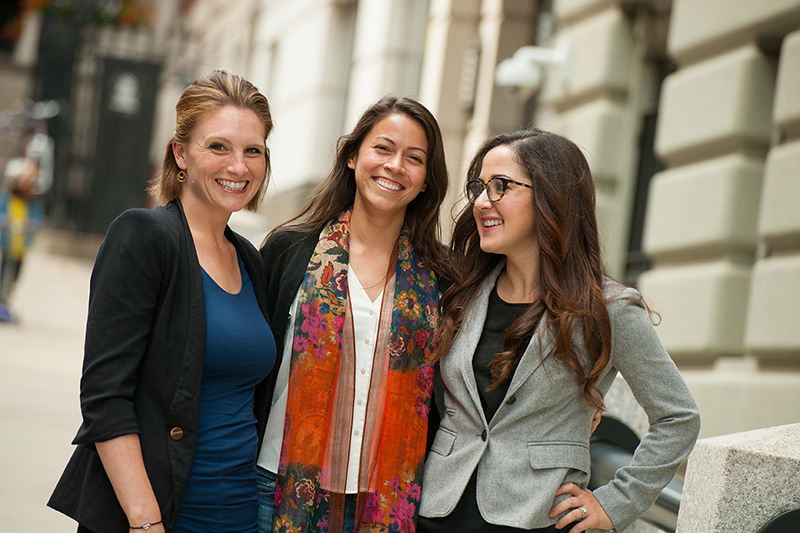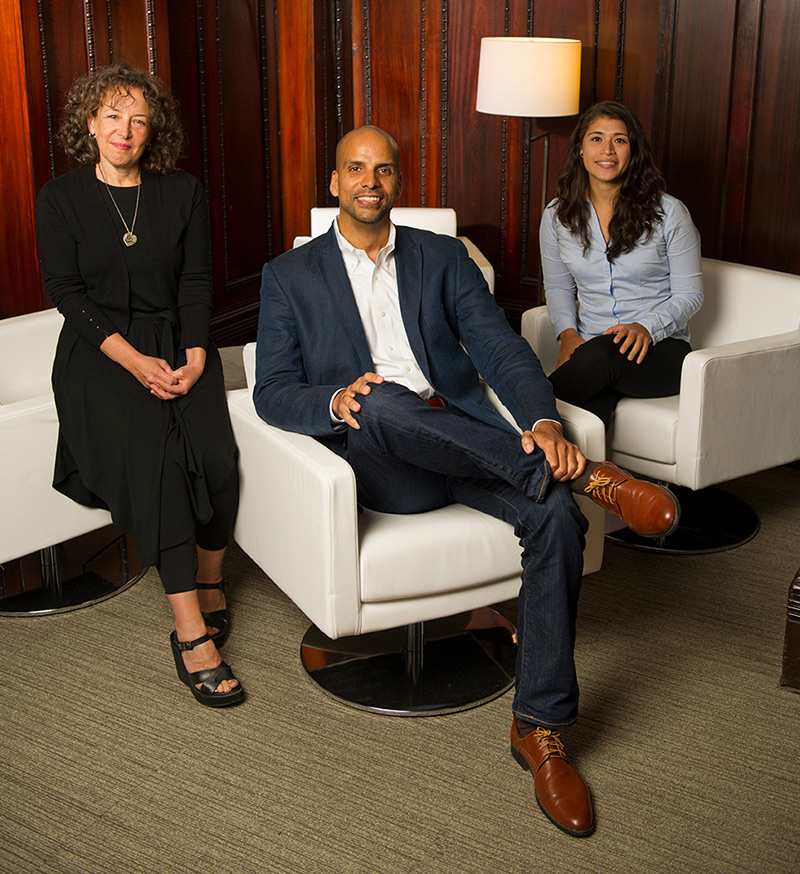Making a Federal Case: Michael Rebell and his students hope to convince the Supreme Court that education is a Constitutional right

Rodriguez v. San Antonio, as the case became known, made it all the way to the U.S. Supreme Court, which just 14 years earlier had ended school segregation. Now, at the height of the Civil Rights era, Rodriguez was widely expected to become the sequel to that decision.
“Establishment Republicans like [John] Roberts are concerned about the damage that’s being done right now to our civic institutions. Civic education is meat and potatoes for judges, so this could be an opportunity for them to make a powerful statement.”
— Michael Rebell
But by 1973, when the Court issued its ruling, a backlash against racial integration had begun. Chief Justice Earl Warren had retired, replaced by Warren Burger, a Nixon appointee. In a five-to-four decision, the Court found that no violation had occurred in Rodriguez because – as Associate Justice Lewis Powell (another Nixon appointee) wrote for the majority – “education…is not among the rights afforded explicit protection under our Federal Constitution.”
Rodriguez signaled a major retrenchment in federal efforts to make schools more equitable, kicking the issue of school finance back to the states. Powell’s opinion overrode dissenting arguments by Thurgood Marshall and William Brennan that education is, in fact, an implicit Constitutional right because citizens require it to exercise their First Amendment right to freedom of expression and their Fifteenth Amendment right to vote. The Rodriguez plaintiffs had made no such contention, Powell declared; they were simply seeking more money. Yet he did not exclude the possibility of the Court hearing a future case that did seek to connect school funding to the exercise of citizenship.
“The Court left a door open in Rodriguez,” says Michael Rebell, Professor of Law & Educational Practice and Executive Director of Teachers College’s Center for Educational Equity (CEE). “But the Court has grown increasingly conservative, and the fear about bringing another case has been that it would close the loophole forever. So no one has wanted to touch it.”
Long Odds, High Hopes
Until now.

[ Read stories on other efforts by the Center for Educational Equity (CEE) to promote civic preparation, and on the Smart Family Foundation’s support of CEE’S work. ]
Why would Rebell, who hatched his plan when it appeared that a Hillary Clinton Presidency would tip the Court to a liberal majority, bring his case in the era of Donald Trump, before a conservative-majority Court presided over by John Roberts?
“Establishment Republicans like Roberts are concerned about the damage that’s being done right now to our civic institutions,” Rebell says. Courts and judges have traditionally taken a very strong interest in teaching young people about the workings of government. Former Justice Sandra Day O’Connor founded an online initiative called iCivics, and current Justices Neil Gorsuch and Anthony Kennedy spoke last summer at the annual conference of the United States Courts for the Ninth Circuit, which focused on civic education.
“Civic education is meat and potatoes for judges, so this could be an opportunity for them to make a powerful statement,” Rebell says.
Marathon Man
Bringing a Supreme Court case can take many years, with no assurance of ever even reaching the docket, but Rebell, who used to run marathons, is uniquely qualified.
A former class-action lawyer early in his career, Rebell became interested in whether these suits actually better people’s lives. He published a theory in the Yale Law and Policy Review arguing that court-ordered remedies work best when they have input and buy-in from the people they’re designed to help.
“A memorable change must be made in the system of education and knowledge must become so general as to raise the lower ranks of society nearer to the higher”
— John Adams
From the early 1990s through the mid-2000s, Rebell was given a major opportunity to test that theory as lead attorney and chief strategist for the Campaign for Fiscal Equity (CFE), the plaintiff in a suit seeking additional state funding for New York City’s public schools. Previous school finance suits had sought to equalize funding for all schools – a non-starter in the world’s foremost capitalist society. But Rebell’s strategy differed on two counts. First, he set his sights on “adequacy” rather than strict equality. Citing language in New York’s constitution that, unlike the nation’s, does guarantee all children “a sound, basic education,” he argued that schools need a certain minimum level of funding to fulfill that promise. And second, putting his theory of public engagement into practice, Rebell also held town meetings across the city and state to define the precise nature and cost of a sound, basic education – an effort aided by the recent establishment of state standards for what students at each grade level should know and be able to do. It’s this kind of work that connects Rebell, a one-time Peace Corps volunteer and self-described “product of the Sixties,” with what really seems to motivate him: a passionate belief in the power of the people.

In March 2006, Rebell and CFE prevailed. Responding to an order by New York’s highest court, the state legislature passed an Act to phase in, over four years, a $5.2 billion annual funding increase to New York City schools and $4 billion annually for the schools in the rest of the state. Only a fraction of that money changed hands before the 2008 recession hit, though the state has since begun to increase school funding again. However, plaintiffs in two dozen other states have won similar lawsuits, mostly using variants of Rebell’s “educational adequacy” strategy.
Higher Stakes
This time, though, Rebell isn’t necessarily seeking more money. His goal, at first glance, seems surprisingly modest and abstract: a declaratory judgment, or pronouncement by the Court, that 21st-century schooling must be reoriented to accomplish what (he argues) the Constitution’s framers saw as its primary goal: to prepare the nation’s young people to function as knowledgeable, capable citizens.
“If the U.S. Supreme Court declares that educational opportunities to prepare students for civic preparation constitute a constitutional right, that principle will become a permanent, foundational feature of education policy.”
— Michael Rebell
In a forthcoming book titled Flunking Democracy (University of Chicago Press), Rebell backs that claim with quotes from John Adams (“A memorable change must be made in the system of education and knowledge must become so general as to raise the lower ranks of society nearer to the higher”), Thomas Jefferson (“Ignorance and despotism seem made for each other”) and Benjamin Rush (“If the common people are ignorant and vicious, a republican nation can never be long free”). He cites clauses in 32 state constitutions, referenced by judges in virtually every successful school finance lawsuit, that, in large part, define civic preparation as the purpose of education. And he offers powerful evidence, including trends in voter participation, newspaper readership and national student assessments, that the civic knowledge and engagement of young people – particularly those of color, whose schools are often the most resource-strapped – are in free fall.

Could a declaratory judgment really reverse that direction? The details would be left to the states, which sounds chancy. Yet there is precedent here, too. In 1973, in a case called Lau v. Nichols, the Supreme Court ordered San Francisco’s public school system to provide equal education to students with limited English proficiency. A year later, Congress passed major follow-up legislation, and the federal Office for Civil Rights developed the Lau Remedies, leading to the development of bilingual programs in most public schools.
“If the U.S. Supreme Court declares that educational opportunities to prepare students for civic preparation constitute a constitutional right,” Rebell writes in Flunking Democracy, “that principle will become a permanent, foundational feature of education policy.”
Long-Range Planning
The great lesson of legal history, Rebell has come to believe, is to expect the unexpected. “Major policy-changing legislation is a saga that develops over time, and the people who start it would often be as surprised as anyone to see the outcome,” he told students in his “Schools, Courts and Civic Participation” class in September. “And courts don’t always do what you want them to. We’re asking the Court to take a stand that will strongly influence public policy, and the Court will be acutely aware of public sentiment – so framing the policy consequences can be critical.”
“We’re asking the Court to take a stand that will strongly influence public policy, and the Court will be acutely aware of public sentiment – so framing the policy consequences can be critical.”
— Michael Rebell
The lawyers in Lau adroitly minimized the implications of their case, he said. They chose a Chinese-America plaintiff because Chinese-Americans were stereotyped as diligent students and because the Chinese-American population’s relatively small size seemed likely to soothe worries about the costs of expanding English education. In contrast, the Rodriguez plaintiffs hired a community lawyer who possessed no education law background and who was wholly unaware that an entire legal community had long been discussing possible strategies for just such a case.
“So do we want to be more like the lawyers in Lau or in Rodriguez?” Rebell asked his students.
Lau, was the unanimous answer. Rebell agreed, but cautioned that there are times when plaintiffs’ wants and needs outweigh the dictates of smart legal strategy. In New York’s school finance case, for example, he and his legal team had asked the state’s highest court to define a sound basic education as preparation for gainful employment as well as citizenship. The court appeared to have accepted only the citizenship part in its tentative definition, but in town meeting after town meeting, parents made it clear that they wanted both definitions.
“Finally we had this thing out at a big forum in the South Bronx,” Rebell recalled. “I said to the people, look, I understand what you’re saying, but if we push the court on something they rejected, there’s a real risk we’re gonna lose the case. And this woman says, ‘Hey, Mister, if you’re telling me you can’t guarantee my kid gets a job, what in hell is your damned case worth anyway?’ So we went back and added preparation for competitive employment to the evidence we presented at the trial. We would never have done it without that public reaction.”
He paused and grinned at the students hanging on his words. “The Court’s final definition of sound basic education included both citizenship and competitive employment. And we won.”
— Joe Levine
Download this article as a PDF
Related Stories
Off Course: America’s schools are falling short in preparing young people for civic participation
The Smart Money is On Civic Education: A leading philanthropic family is betting on TC’s efforts
Published Tuesday, Nov 7, 2017